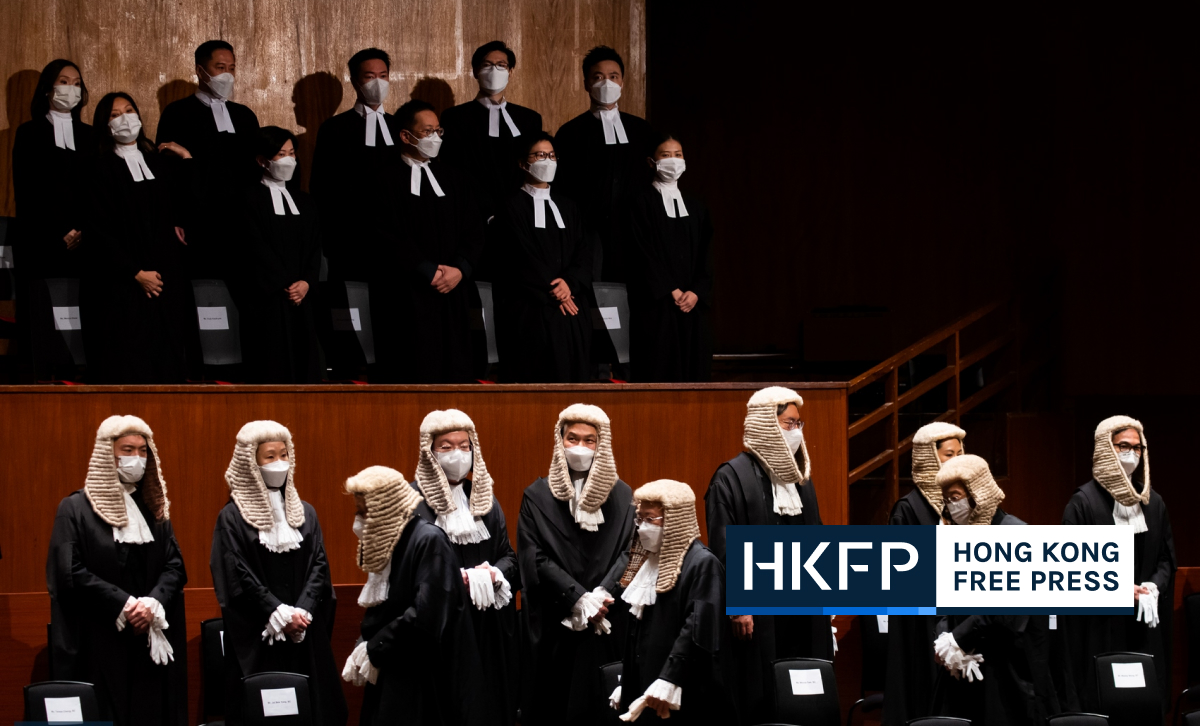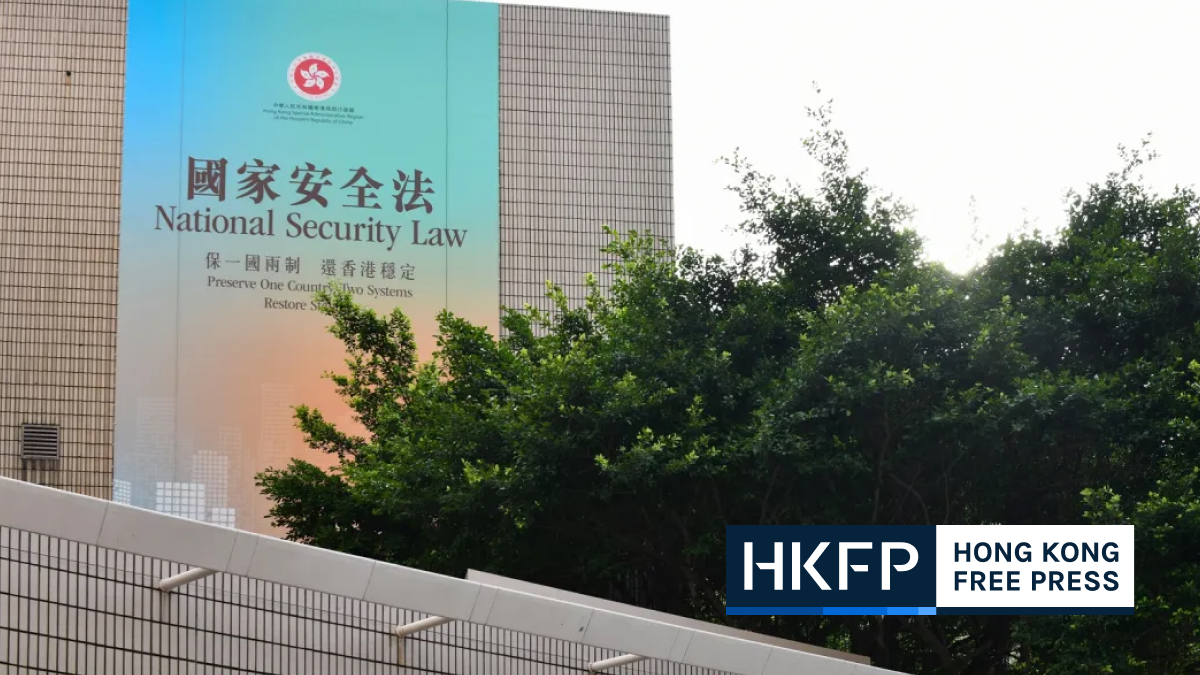Hong Kong authorities continued their campaign against those with links to eight wanted overseas activists, with their family members and associates “taken” from their homes for offices for questioning. Additionally, 12 people with connections to a defunct 2019 protester relief fund were arrested almost two years after it ceased operations.
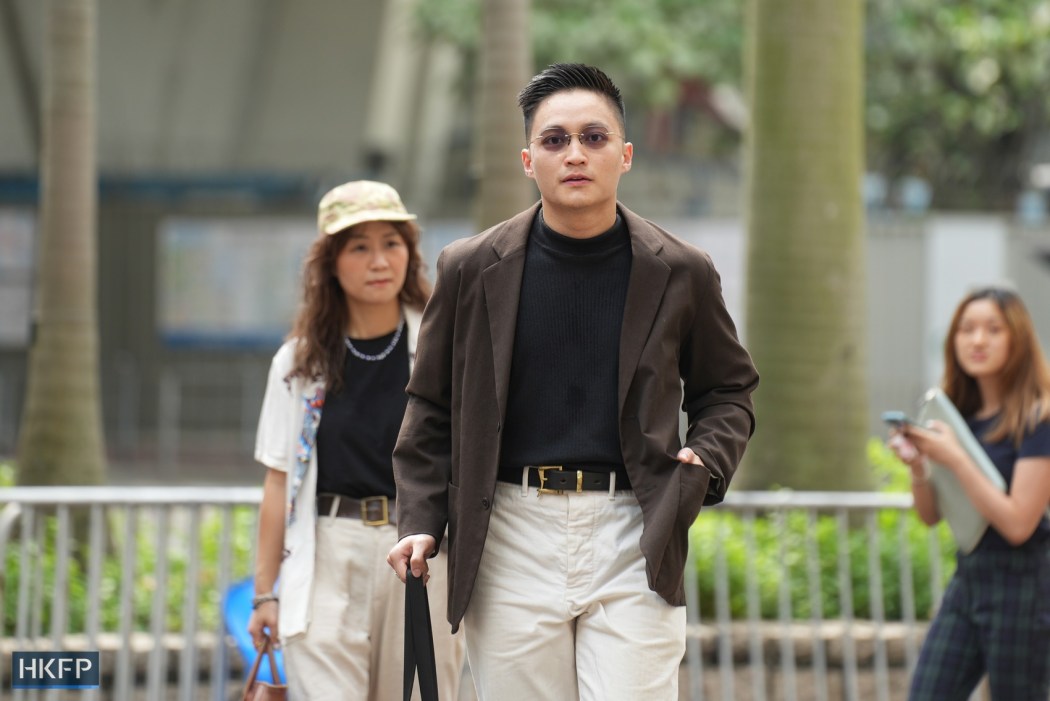
Landmark national security cases have been progressing slowly. The trial involving 47 high-profile democrats was adjourned to November to allow both sides to prepare closing arguments, while the trial against pro-democracy media tycoon Jimmy Lai was postponed once again and is now set to resume in December.
Also, a Cantonese-language advocacy group closed after it received a warning from the national security police, and taxi drivers were called upon to join the city’s fight against terrorism.
12 people arrested with links to defunct fund
Four men and six women, aged 26 to 43, linked to the defunct 612 Humanitarian Relief Fund, set up to help Hong Kong protesters during the 2019 anti-extradition bill unrest, were arrested by national security police on August 10.

Among the 10 were former staff of the relief fund and members related to a group that offered medical services to protesters, local media reported. Police said they were suspected of “conspiring to collude with a foreign country or with external elements to endanger national security” and inciting a riot.
Another two men, aged 33 and 59, were arrested by national security police over links to the fund on August 29.
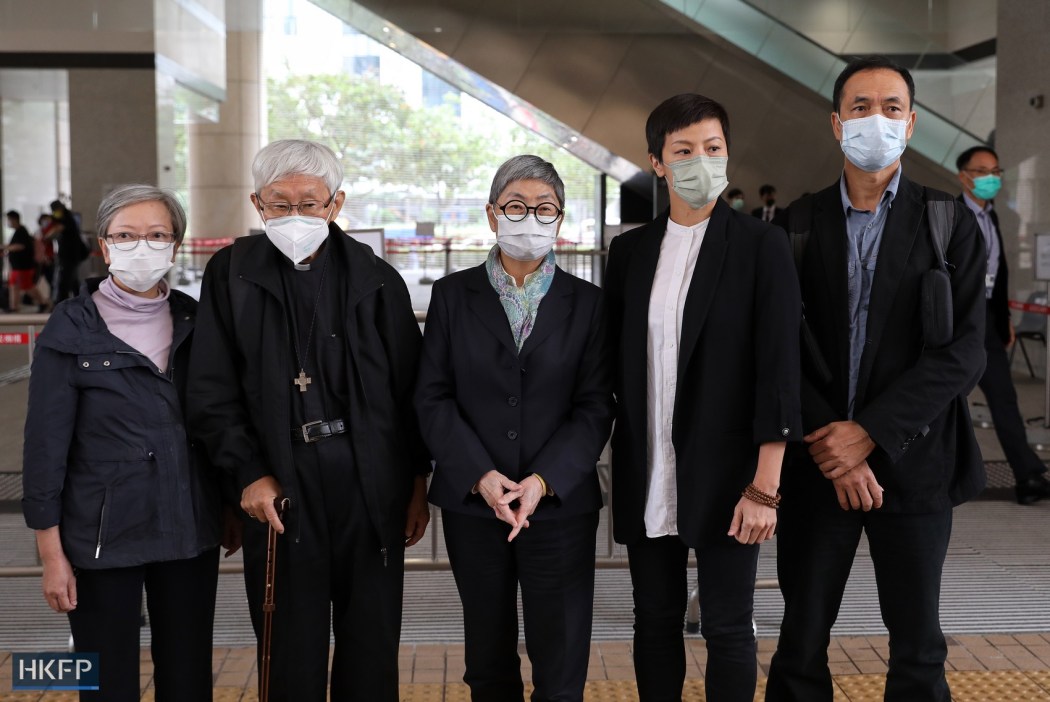
The police said in a press release that both were suspected of “conspiracy to collusion with a foreign country or with external elements to endanger national security” under the national security law and “conspiracy to incite others to commit riot.”
‘Taken for questioning’
Hong Kong national security police questioned the ex-wife, daughter and son of Elmer Yuen, one of the eight overseas activists for whom arrest warrants were issued and HK$1 million bounties were offered, local media reported citing sources on August 3.
Following this move, the parents of US-based Anna Kwok, who was also among the eight wanted by national security police, were taken to a police station on the morning of August 8.
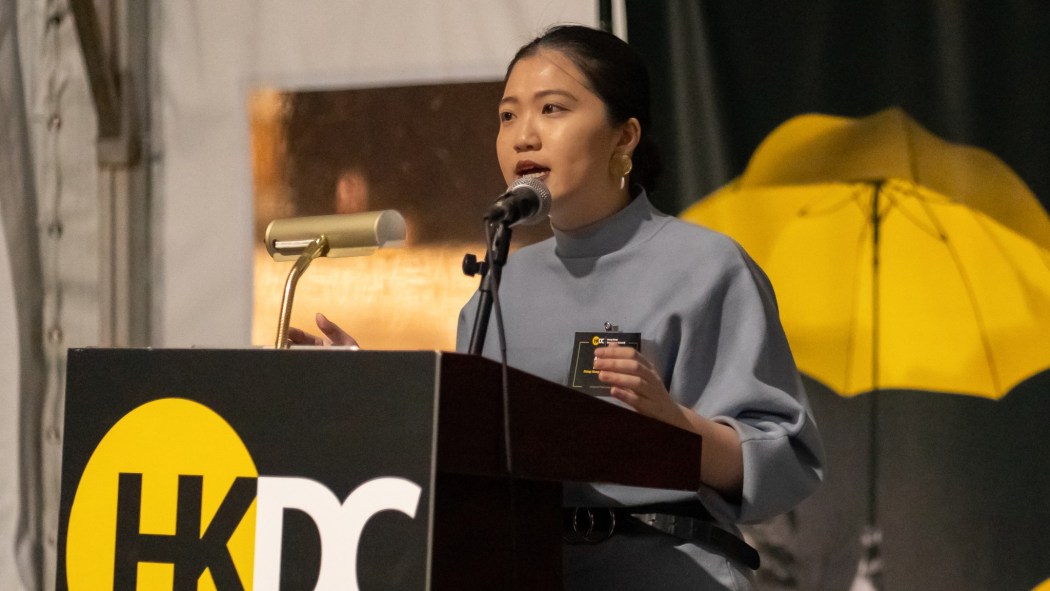
On August 18, a woman named Yu Chi-yan and, the following day, the sister-in-law of another of the eight, wanted activist Nathan Law, were also questioned.
Two brothers of wanted activist Anna Kwok were taken for questioning on August 22.
By late August, at least 32 family members and associates of the eight self-exiled pro-democracy figures had been questioned by national security police.
An Asia-based legal group the Law Association For Asia and the Pacific (LAWASIA) expressed concern over “the broad application” of the Beijing-imposed national security law, after the arrest warrants and HK$1 million bounties were announced last month.

In response, the administration has condemned unnamed “overseas legal professional” groups for “groundless attacks and slandering” against the sweeping security legislation and law enforcement actions.
Minimum national security sentences mandatory
Hong Kong’s top court ruled on August 22 that a guilty plea cannot be used in mitigation to reduce jail terms below the five-year minimum for “serious” security law offences, after a student who pleaded guilty to inciting secession was denied a customary sentence discount.
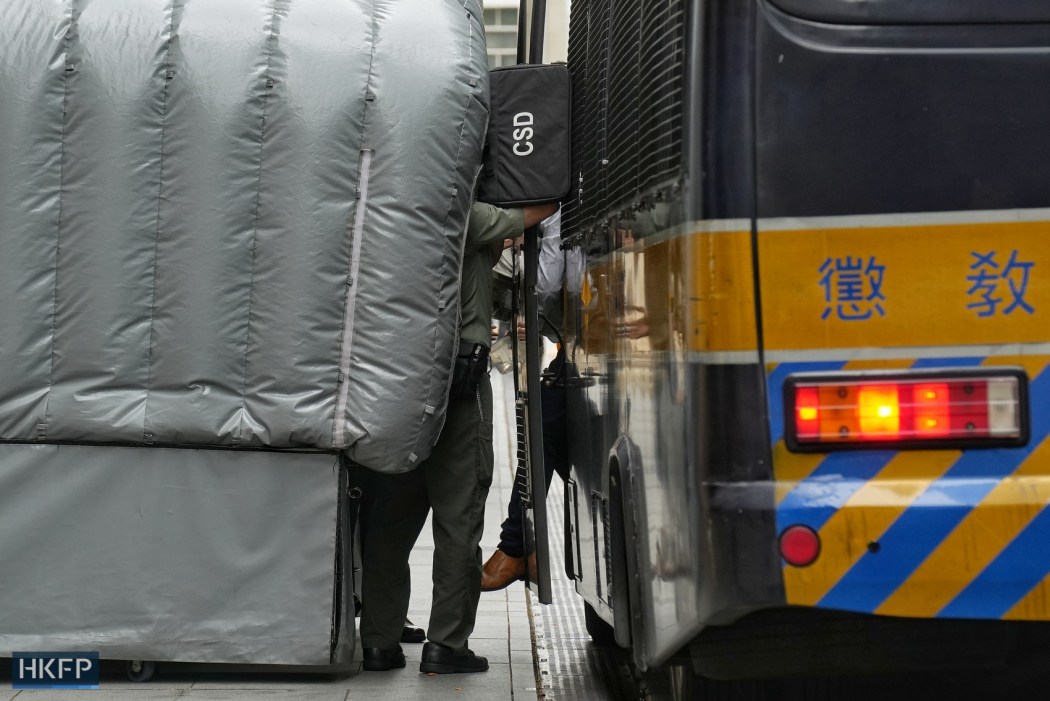
The Court of Final Appeal handed down its decision to Lui Sai-yu, a former Hong Kong Polytechnic University student. Lui was sentenced to five years in jail last April after being accused of inciting secession over selling weapons on messaging app Telegram and posting pro-independence messages, an offence the court considered of a “serious nature.”
Gov’t given second chance to ban protest song
A Hong Kong court granted the government permission to lodge another attempt to ban Glory to Hong Kong, an anthem that emerged from 2019 pro-democracy protests, after the initial bid was dismissed in July.
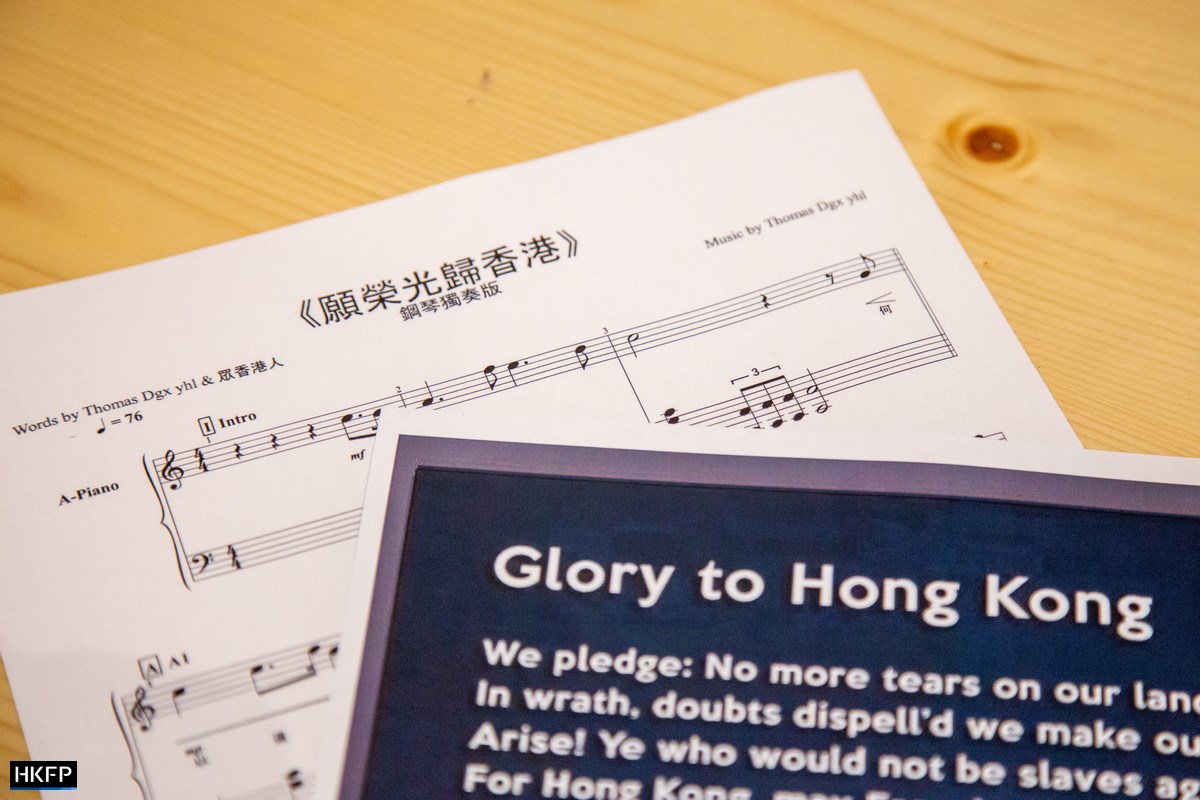
Officials in June requested an injunction to ban the song Glory to Hong Kong, penned anonymously at the height of the protests, to stop it from being performed or disseminated with criminal intent.
But in a surprise ruling in late July, the High Court refused the application, saying that an injunction would not be useful and would cause “chilling effects” on free expression.
The government said earlier in August that Hong Kong’s chief executive – not the city’s courts – should have the “greatest weight” in national security matters.
Cantonese-language group closes
A Cantonese-language advocacy group ceased operations after its founder Andrew Chan said his home had been raided by Hong Kong national security police over a fictional piece of writing that was submitted to a competition organised by the group.
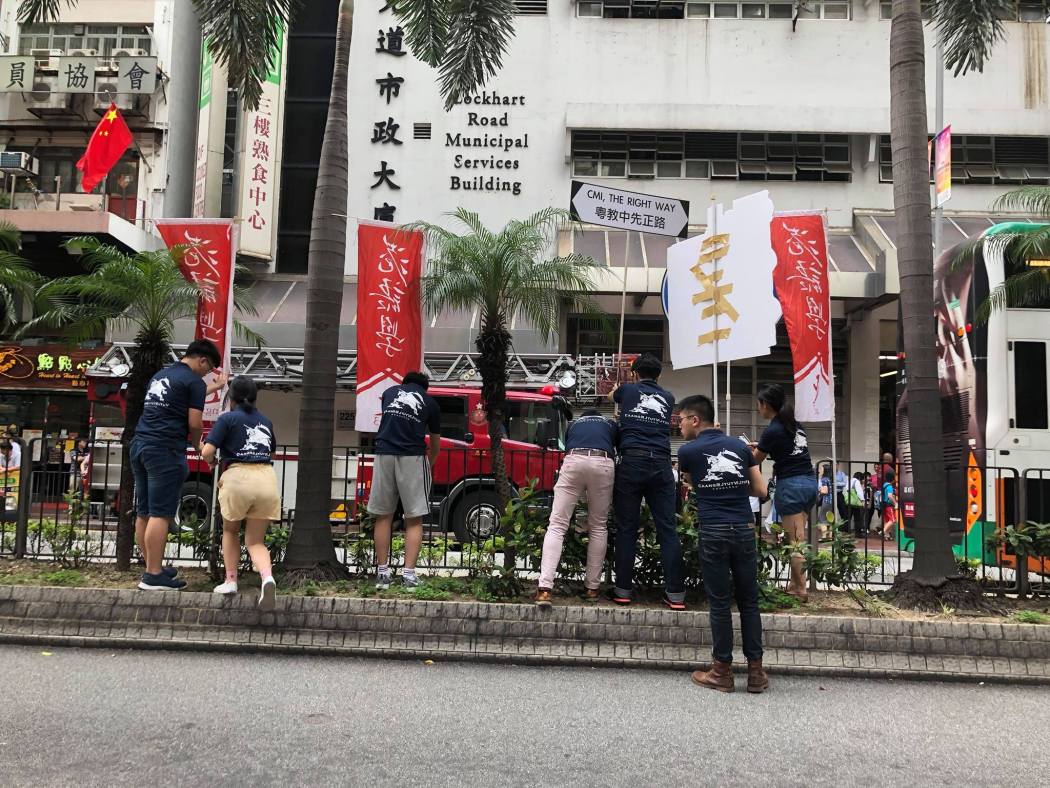
Chan founded the Cantonese-language advocacy group Societas Linguistica Hongkongensis (SLHK) in 2013, when he was a second-year student at Hong Kong Baptist University.
The group was established to promote Cantonese and “safeguard the linguistic rights of Hongkongers,” after policies were put forward to push Mandarin-language instruction in the city’s schools.
Security chief responds to Danish sculptor
Hong Kong’s security minister said he would not inform a thief that they were going to be arrested, after he was asked whether the city’s national security police had plans to arrest a Danish artist behind a 1989 Tiananmen crackdown monument on August 27 during a media briefing.
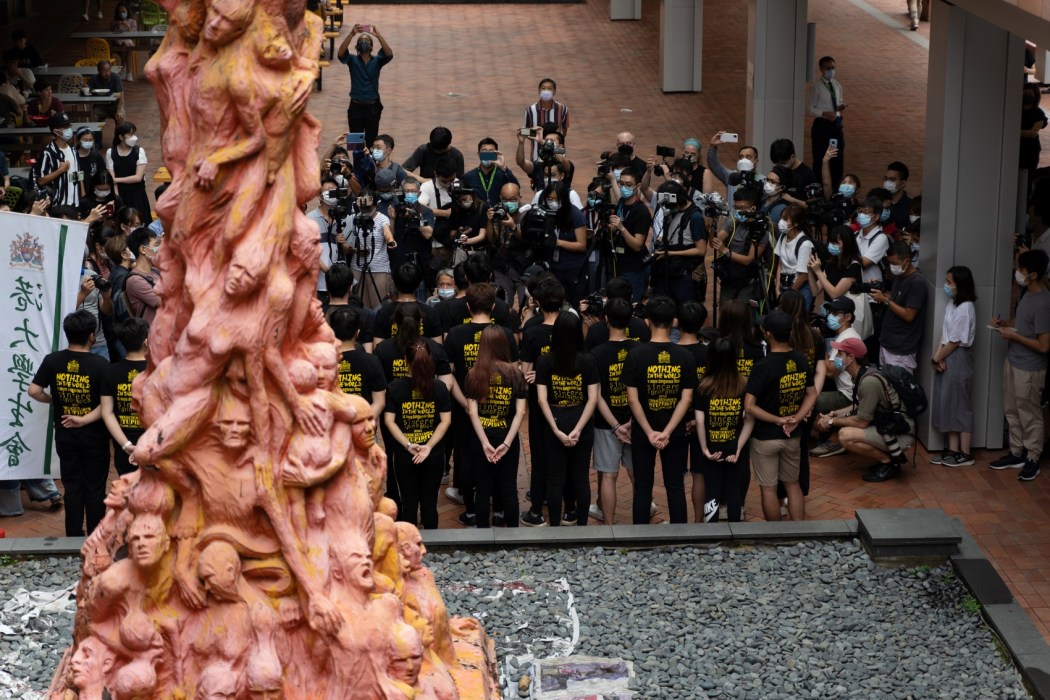
Citing sources, local newspaper Sing Tao reported that Hong Kong’s national security police planned to arrest Jens Galschiøt, who created the Pillar of Shame, if he travelled to the city, and transfer the artist to mainland China for trial, the report read.
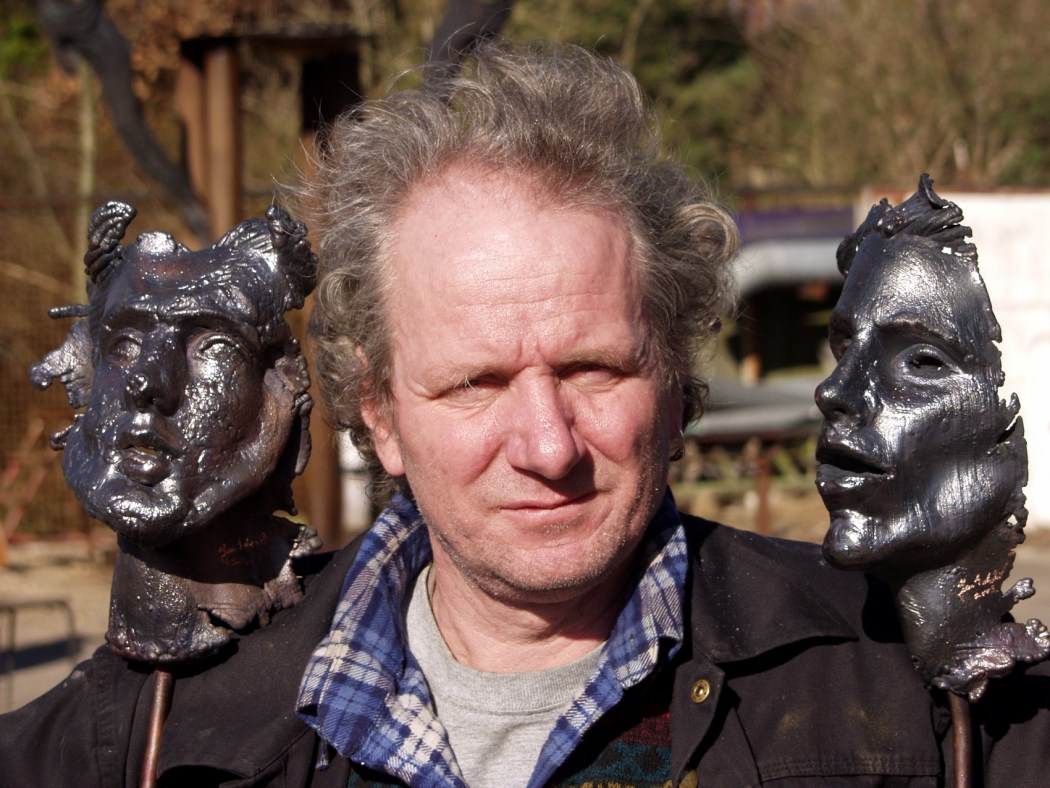
Earlier in August, Hong Kong’s security chief claimed in a response to the Danish sculptor that people who sought to endanger national security commonly engaged in such acts under the pretext of “peaceful advocacy” and “artistic creations.”
Arts spaces must safeguard national security
Hong Kong NGOs were invited to submit proposals on August 21 to operate and maintain a historic listed building, which has been home to arts and cultural venue Fringe Club for 40 years.
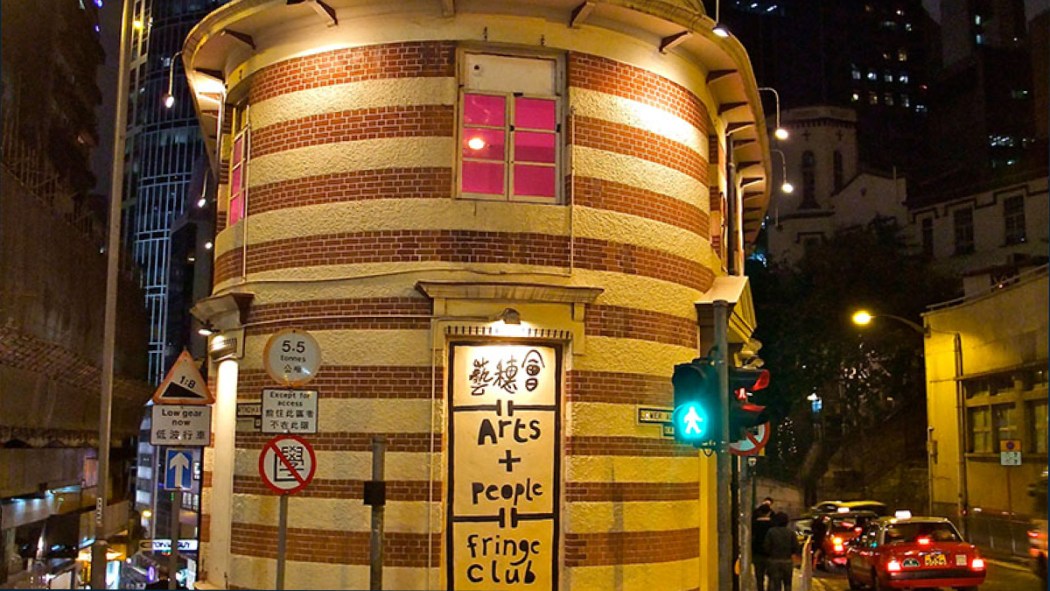
In a 35-page project brief, the the Culture, Sports and Tourism Bureau said the potential operator should safeguard national security. The term “national security” appears 22 times in the document.
Hong Kong’s “movie walk” – the Avenue of Stars – and Salisbury Garden located on the Tsim Sha Tsui harbourfront were also calling for proposals from potential operators.
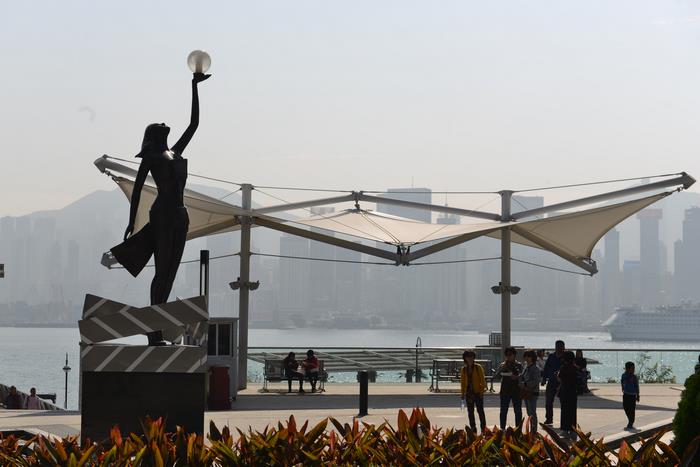
New World Development’s agreement to operate the site expires in April next year, 20 years after the its opening in 2004. The developer, which devoted HK$40 million to the design and construction of the project, has been operating the Avenue of Stars since then.
Trial of Jimmy Lai
A Hong Kong court postponed the high-profile trial of pro-democracy media tycoon Jimmy Lai once again to December 18, when one of the handpicked judges is expected to have finished presiding over another landmark national security case involving 47 democrats.
The rescheduling of the trial, which was supposed to begin last December before being adjourned to September, was to ensure that national security Judge Alex Lee would be done with another national security trial before the start of Lai’s case.
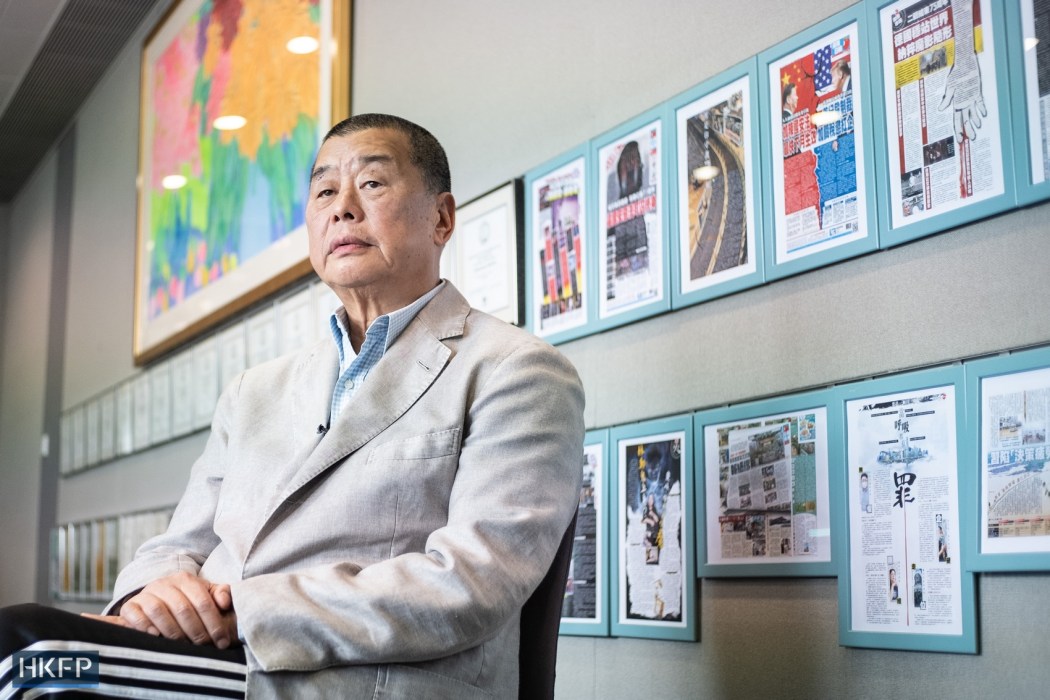
The 75-year-old media tycoon faces three charges: two counts of conspiracy to collude with foreign forces under the security law, and one offence linked to allegedly seditious publications.
Lai was ordered earlier this month to pay the cost of his “unreasonable” litigation conduct concerning two failed legal challenges in his bid to ask a local court to prevent Beijing’s interpretation of the national security law from affecting an earlier ruling that allowed him to be represented by UK lawyer Timothy Owen at his upcoming trial.
47 democrats’ trial
The national security trial relating to 47 Hong Kong pro-democracy figures was adjourned to November for the prosecution and defence to prepare closing arguments. It came after the last defendant completed testifying in the case surrounding an unofficial legislative primary poll held in 2020.
In August, Hong Kong activist Owen Chow; Lee Yue-shun, a member of the since-disbanded Civic Party; and Winnie Yu– the former chairperson of a pro-democracy medics’ union delivered their testimony.
National security hotline
Hong Kong’s national security police received over 380,000 tip-off messages on their reporting hotline and on WeChat in the two years between November 2020 and December 2022, according to the force’s annual review for last year.
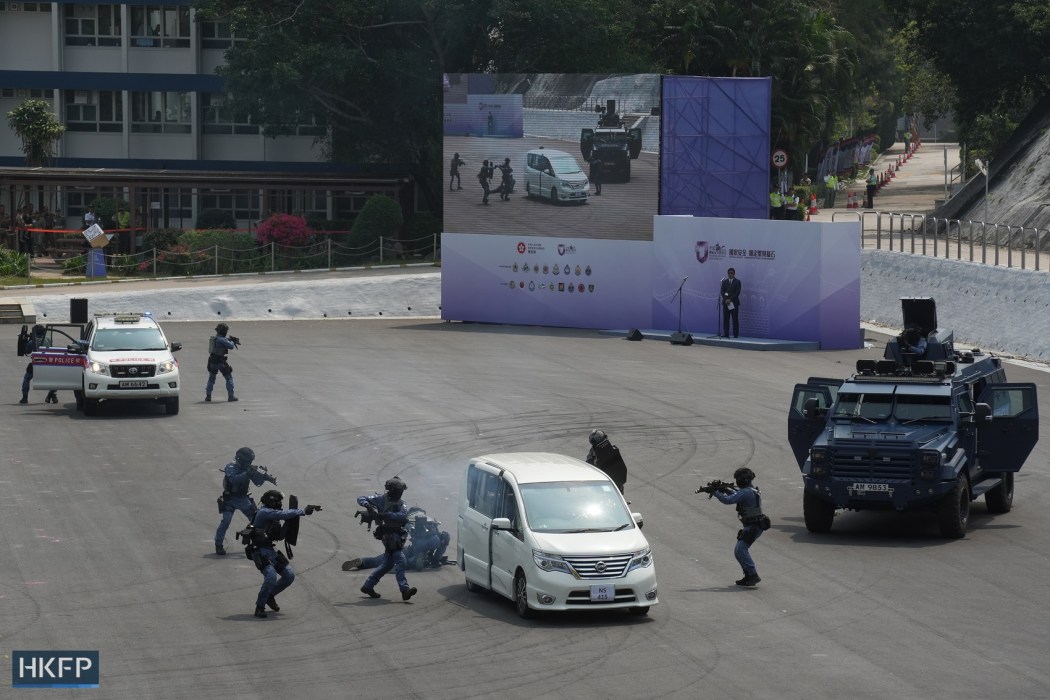
“The encouraging response highlights the community’s support and commitment to upholding national security,” the review read.
Taxi drivers called for counter-terrorism
Hong Kong taxi drivers were urged by the counter-terrorism unit of the police to report any suspicious persons, objects or activities they may encounter while driving around the city. The police called the taxi sector – with over 18,000 taxis and around 46,000 active taxi drivers – a “gatekeeper of the safety of the community.”
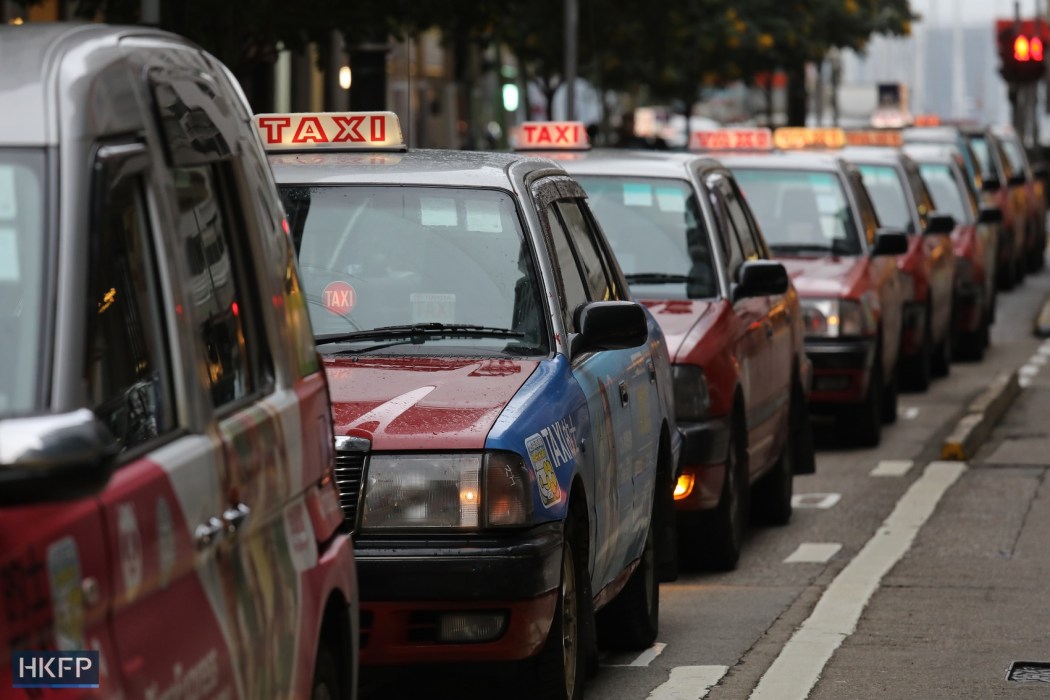
Arrest and prosecution tally
As of August 18, 277 people have been arrested for suspected acts and activities that endangered national security since the legislation was enacted, the Security Bureau told HKFP. Among them, 161 people and five companies had been charged under the national security law or the sedition law or with other crimes.
Among the 84 persons who have been convicted or are awaiting sentencing, 30 were charged under the national security law.
Support HKFP | Policies & Ethics | Error/typo? | Contact Us | Newsletter | Transparency & Annual Report | Apps













